Classic Commentaries and Studies on Genesis Upgrade (25 vols.)
Digital Logos Edition
This product has been transferred from Community Pricing to Pre-Pub. The actual funding level may be lower than it appears, which could delay production. The amount of funding still needed will be evaluated and updated soon.
Overview
Get a complete set of tools for studying Genesis with the Classic Commentaries and Studies on Genesis Collection. It includes exegetical and grammatical handbooks, interlinears, commentaries, and theological monographs—all aimed at illuminating the meaning of Genesis, its literary structure, linguistic nuances, and theological implications. It balances modern and traditional perspectives, and it emphasizes the importance of the book’s historical origin and ancient literary culture for interpretation. This collection equips you to study every aspect of Genesis, understand it at a deeper level, and explain its stories and teachings clearly.
The Logos editions of the Classic Commentaries and Studies on Genesis Upgrade equips you for better study with cutting-edge functionality and features. Citations link directly to English translations and original-language texts, and important terms link to dictionaries, encyclopedias, and a wealth of other resources in your digital library. The Topic Guide lets you perform powerful searches to instantly gather relevant biblical texts and resources. Tablet and mobile apps let you take the discussion with you. With Logos Bible Software, the most efficient and comprehensive research tools are in one place, so you get the most out of your study.
Get more on Genesis with Classic Commentaries and Studies on Genesis (22 vols.).
Key Features
- Provides multiple volumes on Genesis’ unique grammar and syntax
- Presents both modern and traditional authorship theories
- Emphasizes the importance of historical origin and ancient literary culture for interpreting Genesis
- Includes interlinears, grammatical handbooks, and exegetical guides
Product Details
- Title: Classic Commentaries and Studies on Genesis Upgrade
- Volumes: 25
- Pages: 8,987
Individual Titles
- Notes, Critical and Practical, on the Book of Genesis, vol. 1 by George Bush
- Notes, Critical and Practical, on the Book of Genesis, vol. 2 by George Bush
- The Book of Genesis by Calvin Goodspeed and D.M. Welton
- A New Commentary on Genesis, vol. 1 by Franz Delitzsch
- A New Commentary on Genesis, vol. 2 by Franz Delitzsch
- The Book of Genesis in English-Hebrew by William Greenfield
- Notes, Critical and Explanatory on the Book of Genesis: From the Creation to the Covenant by Melancthon W. Jacobus
- Notes, Critical and Explanatory on the Book of Genesis: From the Covenant to the Close by Melancthon W. Jacobus
- Analysis and Critical Interpretation of the Hebrew Text of the Book of Genesis by William Paul
- Notes on Genesis by J. Davies
- Phraseological Notes on the Hebrew Text of the Book of Genesis by Theodore Preston
- Sarah and Hagar, or, Genesis the Sixteenth Chapter Opened by Josias Shute
- A Commentary upon the First Book of Moses, called Genesis by Patrick Simon
- Bereshit: Genesis Elucidated by John Jervis-White Jervis
- Beginning of Genesis, with Notes and Reflections by Isaac Williams
- Introduction to the Book of Genesis with a Commentary on the Opening Portion, vol. 1 by Peter von Bohlen
- Introduction to the Book of Genesis with a Commentary on the Opening Portion, vol. 2 by Peter von Bohlen
- Bible Lessons for Schools: Genesis by E.M. Knox
- Primeval Revelation: Studies in Genesis I–VIII by J. Cynddylan Jones
- A Jewish Interpretation of the Book of Genesis by Julian Morgenstern
- A Rabbinical Commentary on Genesis by Paul Isaac Hershon
- Genesis and Its Authorship by John Quarry
- Handkommentar zum Alten Testament: Genesis by Hermann Gunkel
- Kurzgefasstes Exegetisches Handbuch zum Alten Testament: Die Genesis by August Knobel
- Exegetisches Handbuch zum Pentateuch mit Hebraischem und Lateinischem Text: Die Genesis by Gottfried Hoberg
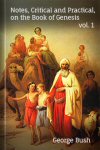
Gain the insights and observations necessary for understanding Genesis as a historical, theological, and practical book. Focused on reading the text at face value, George Bush explains the text with the aim of making it directly relevant to Christian life. Volume 1 covers chapters 1–21.
George Bush (1796–1859) was educated at Dartmouth College and Princeton University. He was a professor of Hebrew and oriental literature at New York University and the author of numerous commentaries, including Notes, Critical and Practical, on the Book of Exodus, Notes, Critical and Practical, on the Book of Joshua, Notes, Critical and Practical, on the Book of Judges, and Notes, Critical and Practical, on the Book of Leviticus.
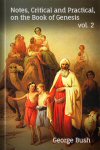
Gain the insights and observations necessary for understanding Genesis as a historical, theological, and practical book. Focused on reading the text at face value, George Bush explains the text with the aim of making it directly relevant to Christian life. Volume 2 covers chapters 22–50.
George Bush (1796–1859) was educated at Dartmouth College and Princeton University. He was a professor of Hebrew and oriental literature at New York University and the author of numerous commentaries, including Notes, Critical and Practical, on the Book of Exodus, Notes, Critical and Practical, on the Book of Joshua, Notes, Critical and Practical, on the Book of Judges, and Notes, Critical and Practical, on the Book of Leviticus.
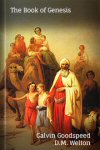
Engage the stories of Genesis with a commentary that explains the Hebrew text, addresses modern scholarship, and reinforces traditional interpretations of Genesis. Both Calvin Goodspeed and D.M. Welton were critical of modern scholarship’s historical-critical approaches to Genesis, and they draw on the nuances of the Hebrew text to put forth a strong case for reading the book as a historical document.
Calvin Goodspeed (1842–1912) was a Baptist minister and professor of Old Testament at Baylor Theological Seminary, which later became Southwestern Baptist Theological Seminary. Born in Canada, Goodpeed studied at the University of New Brunswick and New Brunswick Baptist Theological Seminary. He served as a professor of theology and apologetics at McMaster University, and was an outspoken proponent of conservative theological views on Scripture, the atonement, sanctification, and perseverance. He wrote Messiah’s Second Advent, Vicarious Atonement, and The Christian Sabbath.
D.M. Welton (1831–1904) was a professor of New Testament at McMaster University, and a Baptist apologist.
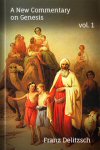
Gain understanding of the modern era’s technical “higher critical” theories of Genesis. Drawing on external historical data, as well as internal literary evidence, Franz Delitzsch’s commentary examines Genesis in light of nineteenth-century research. He argues that the book has a long literary development rather than a single author, and he summons historical-critical exegesis to support his understanding of Genesis. Volume 1 provides both a detailed introduction explaining Delitzsch’s methods and commentary on chapters 1–24.
Franz Delitzsch (1813–1890) was professor of theology at the University of Rostock from 1846–1850, and University of Erlangen from 1851–1867, and University of Leipzig from 1867–1890. Delitzsch is notable for his translation of the New Testament. He wrote A Commentary on Hebrews.
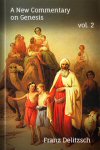
Gain understanding of the modern era’s technical “higher critical” theories of Genesis. Drawing on external historical data as well as internal literary evidence, Franz Delitzsch’s commentary examines Genesis in light of nineteenth-century research. He argues that the book has a long literary development rather than a single author, and he summons historical-critical exegesis to support his understanding of Genesis. Volume 2 provides both a detailed introduction explaining Delitzsch’s methods, and commentary on chapters 24–50.
Franz Delitzsch (1813–1890) was professor of theology at the University of Rostock from 1846–1850, and University of Erlangen from 1851–1867, and University of Leipzig from 1867–1890. Delitzsch is notable for his translation of the New Testament. He wrote A Commentary on Hebrews.
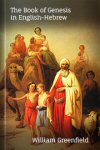
Compare Genesis’ Hebrew text with its English translation in this interlinear presentation. Closely following the King James Version, William Greenfield parses the Hebrew and introduces readers to the unique linguistic features of Genesis. He notes the subtleties of meaning often missed by English translations, and he documents the exegetical challenges presented to modern translators by the Hebrew of Genesis.
William Greenfield (1799–1831) was a linguist, biblical scholar, and member of the British and Foreign Bible Society and Royal Asiatic Society. He was raised in an intellectually rich environment by 2 uncles who taught him multiple languages. At 16 he worked as a book binder’s apprentice and mastered Hebrew. In adulthood Greenfield was able to master entire language systems in days, and in all he mastered more than 20 languages, including 12 European languages, five Asian languages, and three Native American languages. At the time of his death in 1831, he was planning to write a single volume grammar covering 30 languages. His books include The Polymicrian Greek Lexicon to the New Testament, Modern Greek Psalter, and Defence of the Serampore Mahratta Version of the New Testament.
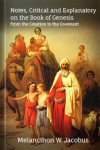
Navigate the theories of modern scholarship on the book of Genesis with this helpful—and apologetically minded—commentary. Melancthon Jacobus’ work helps readers understand the implications of modern theories, and then it draws them back to see how traditional understandings of Genesis account for the historical and literary data in a satisfactory way. Volume 1 covers chapters 1–27.
Melancthon W. Jacobus (1816–1876) was educated at Princeton University, the University of Göttingen, and the University of Berlin. Jacobus went on to become the dean of faculty and professor of New Testament exegesis at Hartford Theological Seminary. Both Lafayette College and Yale University conferred honorary doctor of divinity degrees on Jacobus. He wrote A Commentary on the Gospel according to Mark, Notes, Critical and Explanatory, on the Acts of the Apostles, and Notes on the New Testament.
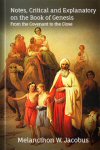
Navigate the theories of modern scholarship on the book of Genesis with this helpful—and apologetically minded—commentary. Melancthon Jacobus’ work helps readers understand the implications of modern theories, and then it draws them back to see how traditional understandings of Genesis account for the historical and literary data in a satisfactory way. Volume 2 covers chapters 28–50.
Melancthon W. Jacobus (1816–1876) was educated at Princeton University, the University of Göttingen, and the University of Berlin. Jacobus went on to become the dean of faculty and professor of New Testament exegesis at Hartford Theological Seminary. Both Lafayette College and Yale University conferred honorary doctor of divinity degrees on Jacobus. He wrote A Commentary on the Gospel according to Mark, Notes, Critical and Explanatory, on the Acts of the Apostles, and Notes on the New Testament.
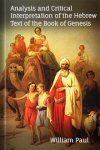
Learn Hebrew by studying the book of Genesis with this helpful introductory grammar and lexical commentary. Pinning the lessons of basic Hebrew to the text of Genesis, this unique resource instructs readers through both inductive and deductive methods. Insightful analysis by William Paul helps readers understand not only the linguistic features of Genesis, but also the implications of its grammatical conventions.
William Paul (1804–1884) was minister of Banchory Devenick, and a professor of natural philosophy at King’s College, Aberdeen. He was a gifted linguist and an Old Testament scholar. His combined interests in science and the Old Testament led him to study and write about the Genesis creation narratives and their relationship to modern science. He wrote The Joy of Recognition, The Scriptural Account of the Creation Vindicated by the Teaching of Science, and The Authorship and Date of the Books of Moses.
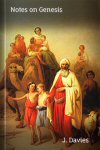
This reader’s guide provides clear definitions of words and phrases found in Genesis. Easy to navigate, you’ll find quick answers to your questions on Genesis. Arranged according to the biblical text, Notes on Genesis avoids minutiae, allowing you to focus on your study.
J. Davies was a professor at the University of London. His other works include St. Matthew’s Gospel: The Text Divided into Paragraphs, and Arranged Chronologically, with Notes, Notes on Judges (including Ruth), Notes on 1 and 2 Kings, and St. Mark’s Gospel: The Text Divided into Paragraphs and Arranged Chronologically with Notes.
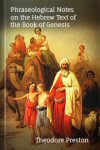
Take a deeper look at Genesis’ most important words, unusual syntax, and grammar. Theodore Preston works directly from the Hebrew and isolates the most challenging phrases in Genesis. He explains the grammar and meaning in light of linguistic research and the usage of similar terms and grammar elsewhere in Scripture.
Theodore Preston was a nineteenth-century Old Testament scholar. He wrote The Hebrew Text, and Latin Version, of the Book of Solomon, Called Ecclesiastes.
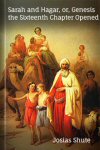
Sarah and Hagar, or, Genesis the Sixteenth Chapter Opened
- Author: Josias Shute
- Publisher: J.L. and Humphrey Moseley
- Publication Date: 1649
- Pages: 208
Isolate Genesis 16 and identify the significance of Sarah and Hagar with this in-depth exegetical and theological study. The Apostle Paul famously derived an allegorical interpretation of this passage in Galatians 4 and 5, and in this volume Shute explains the myriad ways this passage may be interpreted and why this story is a critical turning point in both the Old and New Testaments.
Josias Shute (1588–1643) was archdeacon of Colchester, and member of the Westminster Assembly. Shute mastered Hebrew and wrote three books which his brother published posthumously. They include Judgement and Mercy, or the Plague of Frogges Inflicted Removed, in Nine Sermons and Divine Cordial delivered in Ten Sermons.
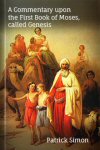
Simon Patrick’s commentary elucidates Genesis verse by verse and staunchly defends Mosaisc authorship. First appearing in the turbulent years between the end of the Reformation and the beginning of the modern period, this commentary provides an exegetical study without the influence of Enlightenment criticism.
Simon Patrick (1626–1707) attended Queens College, Cambridge, and took orders in 1651. He was appointed dean of Peterborough in 1679, and was made Bishop of Chichester in 1689. In 1691, he was translated to the see of Ely. He wrote A Commentary upon the Third Book of Moses, Called Leviticus, A Commentary upon the Fifth Book of Moses, Called Deuteronomy, and contributed to A Critical Commentary on the Old and New Testament and the Apocrypha.
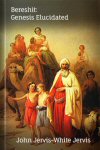
Add a polished scholarly translation of Genesis to your library. This volume offers notes on the linguistic features, historical circumstances, and cultural background of Genesis. John Jervis utilizes the historical-critical method to provide an interpretive translation of Genesis that highlights the “sense” conveyed by the Hebrew of Genesis.
John Jervis-White Jervis (1766–1830) was an Old Testament scholar and assistant chaplain in the East India Company. His brother, Henry Jervis-White Jervis, was a popular nineteenth-century writer.
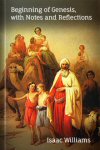
Beginning of Genesis, with Notes and Reflections
- Author: Isaac Williams
- Publisher: Rivingtons
- Publication Date: 1861
- Pages: 455
Penetrate opening chapters of Genesis with this exegetical study. Among the Bible’s most controversial chapters, this commentary informs your study with linguistic and historical information on Genesis and examines its cultural context and origin.
Isaac Williams (1802–1865) was an English vicar and prolific writer. He was a prominent member of the Oxford Movement. Also known as “Tractarians,” these high-church Anglicans saw the Church of England as a branch of the Catholic Church. Williams attended Trinity College, Oxford, where he was a disciple of John Keble. He was ordained in 1829, and became curate in Gloucestershire before returning to Oxford to assist John Henry Newman. He was a fellow and tutor at Oxford, and he wrote poetry and prose, including the influential tract On Reserve in Communicating Religious Knowledge. His other books include The Apocalypse with Notes and Reflections and the multi-volume A Devotional Commentary on the Gospel Narrative.
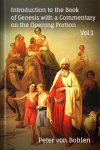
Expand your understanding of Genesis by studying its people groups, individuals, places, symbols, and related ancient documents in light of modern historical discoveries. Though familiar, the precise identity, location, or meaning of many references in Genesis remains ambiguous to modern readers. Peter von Bohlen’s work clarifies those references and establishes a long-term development of the Pentateuch and the Hebrew religion.
Peter von Bohlen (1796–1840) was a professor of Oriental literature and languages at the University of Berlin. Bohlen studied under Georg Wilhelm Freytag and August Wilhelm Schlegel. He was an expert on Sanskrit, and wrote Ancient India and A Comparison of the Lithuanian with Sanskrit, and produced many translations of ancient texts, including Bhartriharis Sententiae.
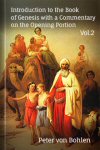
Expand your understanding of Genesis by studying its people groups, individuals, places, symbols, and related ancient documents in light of modern historical discoveries. Though familiar, the precise identity, location, or meaning of many references in Genesis remains ambiguous to modern readers. Peter von Bohlen’s work clarifies those references and explains their impact on the meaning of Genesis. Peter von Bohlen’s work clarifies those references and establishes a long-term development of the Pentateuch and the Hebrew religion.
Peter von Bohlen (1796–1840) was a professor of Oriental literature and languages at the University of Berlin. Bohlen studied under Georg Wilhelm Freytag and August Wilhelm Schlegel, and was an expert on Sanskrit. He wrote Ancient India and A Comparison of the Lithuanian with Sanskrit, and produced many translations of ancient texts, including Bhartriharis Sententiae.
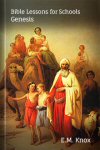
Ideal for young students, this handbook on Genesis provides a simple way to teach its stories and lessons. Short lessons pinpoint life applications and teach basic beliefs about God, creation, and humanity.
E.M. Knox or Ellen Mary Knox (1858–1924) was principal of Havergal College, Toronto. She was educated at Oxford and taught at Cheltenham Ladies’ College in England. She was a dedicated member of the church and led Havergal “with determination and vision through its first thirty years.” She wrote many books, including The Girl of the New Day, Bible Lessons for Schools on Exodus, and Bible Lessons for Schools on the Acts of the Apostles.
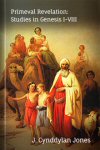
These lectures provide an early defense of creationism against evolutionary theory. J. Cynddylan Jones highlights the implications of accepting evolutionary theory for Christians, and argues for the historical viability of the creation narratives and their immense theological significance.
J. Cynddylan Jones (1840–1930) was a Welsh Congregational minister and theologian. He was an opponent of modernism, and defended orthodox Christianity. He published several well-received commentaries on New Testament texts in both English and Welsh. He wrote Studies in the Acts of the Apostles, Studies in the Gospel according to St. John, and Studies in the Gospel according to Matthew.

Jewish in perspective, this commentary teaches the stories of Genesis, explaining their meaning and significance in Judaism. Intended for readers of all levels, Julian Morgenstern provides a highly informative and comprehensive explanation of Genesis. He makes readers aware of the challenges the book poses and emphasizes the drama and humanity of the Genesis narratives.
Julian Morgenstern (1881–1976) was a rabbi, professor, and president emeritus of Hebrew Union College-Jewish Institute of Religion in Cincinnati, Ohio. During World War II, Morgenstern sheltered 12 Jewish scholars at Hebrew Union College. He served as president of the American Oriental Society and of the Society of Biblical Literature. He was an acclaimed writer, and his works include Amos Studies, Ark, the Aphod and the Tent of Meeting, and Rites of Birth, Marriage, Death and Kindred Occasions among the Semites.
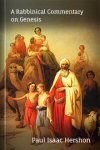
Drawing on the Talmud, Paul Hershon illustrates how Jewish interpreters have understood the book of Genesis. The broad tradition of Jewish interpretation provides many readings of Genesis, and this commentary explains those interpretations in light of Jewish mystical, midrash, and rabbinic traditions.
Paul Isaac Hershon (1817–1888) was born to Jewish parents in Galicia. He converted to Christianity at an early age, and became a missionary. He retired from missionary work to devote himself to full-time study and translation of the Talmud, a project which led him to write numerous books, including Genesis: With a Talmudic Commentary, The Pentateuch according to the Talmud, and Treasures of the Talmud.
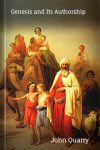
This book argues for the Mosaic authorship of Genesis on the basis of its different names for God and its parallel creation accounts in chapters 1 and 2. The authorship of Genesis was hotly debated during the nineteenth century, and the creation accounts and the name of God were primary concerns—typically used to argue against Mosaic authorship. John Quarry reverses the debate and uses both literary features to support a single author theory for Genesis.
John Quarry (1809–1899) was rector of Donoughmore and canon of Cloyne. He was a distinguished preacher and scholar, preaching and lecturing at England’s most prestigious universities, including Oxford, Cambridge, and Dublin. He wrote Religious Belief: Its Difficulties in Ancient and Modern Times Compared and Considered, On the Epistles of St. Peter, and Mind, Not Matter, the Cause of All Things.
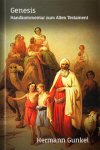
Hermann Gunkel’s commentary examines the book of Genesis through the lens of form critical literary analysis. Emphasizing the importance of the oral tradition in ancient cultures, Gunkel’s work provided the groundwork for understanding how stories, tradition, and literature functioned in the ancient world. This commentary is written in German.
Hermann Gunkel (1862–1932) was professor of Old Testament Theology at the University of Berlin. He is noted for his contribution to form criticism and the study of oral tradition in biblical texts. He was an outstanding representative of the “History of Religion School.” He wrote Creation and Chaos in the Primeval Era and the Eschaton, Israel and Babylon: The Influence of Babylon on the Religion of Israel, What Remains of the Old Testament and Other Essays, and The Legends of Genesis.
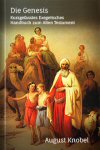
Focused on the meaning of Genesis and comparative analysis with other books in the Pentateuch, this commentary focuses on exegesis and the implications of Genesis’ literary form. This commentary is written in German.
August Knobel (1807–1863) was a professor of theology at Breslau and Giessen. He specialized in Old Testament studies and on the Pentateuch. His books include Commentary on the Book of Ecclesiastes, The Table of Nations from the Book of Genesis, and The Books of Exodus and Leviticus.
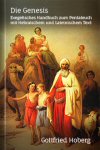
Access Genesis’ unique Hebrew grammar with this exegetical handbook. Focusing on the Hebrew text, Gottfried Hoberg’s work elucidates difficult passages, and helps readers understand the flow and literary forms of the book. This commentary is written in German.
Gottfried Hoberg (1857–1924) was a Catholic priest, theologian, and professor of Old Testament at the universities of Paderborn and Freiberg. He was a consultant to the Pontifical Biblical Commission from 1902 to 1903, and editor of Theological Rundschau for Catholic Germany, Biblical Studies, and Freiburg Theological Studies. His books include Moses and the Pentateuch, Catechism of the Messianic Prophecies, and Bible or Babel?
Reviews
0 ratings

Larry Craig
12/30/2024
Logos has a lot of books left over from community pricing, like this set. But somebody decided to omit all the individual information on these books. And from what I've seen, they've done this with all these sets from CP. How do you expect people to buy all these books sight unseen? Please restore this information. I have been waiting for these books for 10 years now.
Larry Craig
9/26/2019
Why is this still languishing in CP? I bid the highest possible bid. Deltizsch, Jacobus, Bush, Patrick, Gunkel, Knobel. Please get this done.